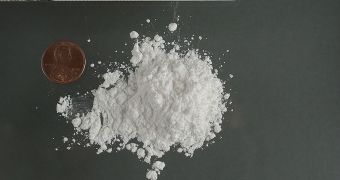Worrying statistics published in a new scientific study indicate that the number of people who die following unintentional overdoses of prescription opioid pain killers has topped that of individuals who perish due to overdose from cocaine and heroin combined.
What this means is that deaths caused by unintentional OD are growing to epidemic proportions in the United States, experts say. The trend is visible in both the teenage and adult populations, they say.
The new data were made available by a collaboration of researchers including experts from the Duke University Medical Center, the University of North Carolina and the Centers for Disease Control and Prevention (CDC), PsychCentral reports.
Data available at this point suggest that unintentional OD deaths topped the number of deaths from cocaine and heroin as fast back as 2007. This means that the numbers may be a lot higher today.
However, experts do not yet have access to the most recent statistics. What they can say for sure is that opioid painkiller overdoses are among the leading cause of deaths in more than 20 states in the US.
In these states, they add, drug OD has topped even the number of car crash deaths, and that of suicides. Both these values were traditionally larger than unintentional overdoses. As such, the issue is becoming a real public health problem.
For 2007, it was discovered that opioid medication accounted for no less than 36 percent of all poisoning suicides in the US. This means more than one in three individuals who took their own lives with pills or poison used these painkillers.
Prescription opioid overdoses killed no less than 27,500 people 4 years ago, the team explains. OxyContin, Percocet, and Vicodin are among the drugs that are most commonly abused, especially by teens and young adults.
“It is very important to screen patients with chronic pain who may require opioid therapy for substance abuse and mental health problems, especially depression and other mood and anxiety disorders, and address these problems adequately,” the authors of the new work.
People suffering from unipolar or bipolar disorders, anxiety, psychotic, non-psychotic, and attention deficit hyperactivity (ADHD) disorders are also at high risk over overdoses, and should be kept under medical supervision for as long as possible.

 14 DAY TRIAL //
14 DAY TRIAL //